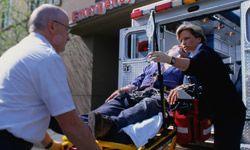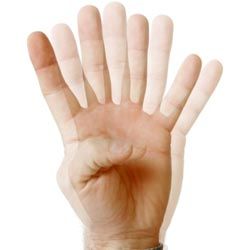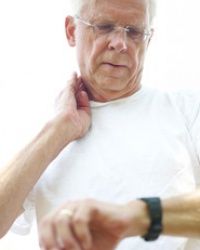Would you know if you or someone you love were having a heart attack? Heart attacks, or acute myocardial infarctions, are the leading cause of death for people over the age of 40 [source: GAA]. In the United States alone, there are 1.2 million heart attacks per year, and about half of those are fatal [source: CDC].
A heart attack happens when arteries get completely blocked and the heart is deprived of oxygen because blood can't get through the blockage. When the heart is deprived of oxygen, its cells start to die. The chest pain that most people associate with heart attacks is the heart's way of calling out for help when it starts dying.
Advertisement
Many people think heart attacks are more of a problem for men than for women, but in fact nearly half of those who die from heart attacks in the United States are women [source: Women's Heart]. Most heart attacks aren't as dramatically painful as the movies suggest. The symptoms of a heart attack are varied, and can be mild and take weeks to manifest. Chest pain is the most common sign, but 16 percent of heart attack sufferers don't experience that at all [source: WebMD]. Women are much less likely to have chest pain before a heart attack and more likely to experience symptoms (like fatigue) that could be mistaken for some other ailment [source: Women's Heart].
With so are many different warning signs, it's not easy to know whether a symptom like nausea or a racing heart is signaling a heart attack. In most cases, though, and especially if you have several risk factors for heart attack, it's better to call for professional help as soon as possible. The sooner you get treatment, the better the chance of survival. You should never wait more than five minutes if you think you might be having a heart attack.
But how do you know? In this article, we'll look at the ten most common symptoms of a heart attack and give some pointers on determining whether or not they could be signs of a heart attack. The most definite sign is first on our list: Where there is chest pain, medical care should follow without delay.






